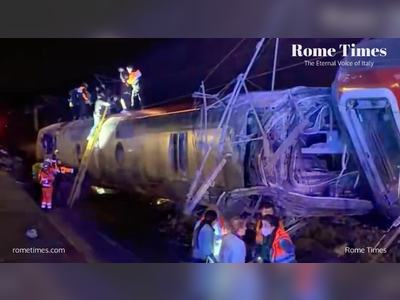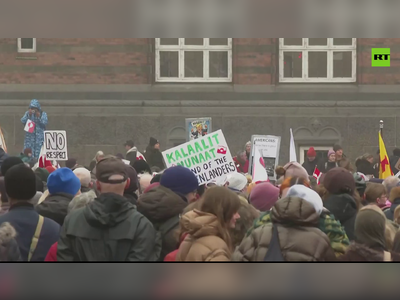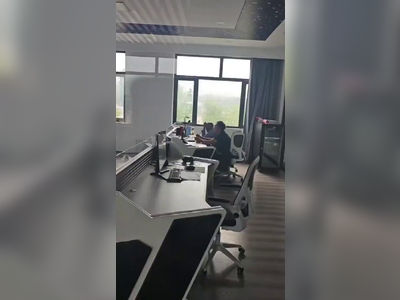
Germany and Italy Intensify Migration Measures Amidst Increasing Arrivals
Germany's CDU leader Friedrich Merz and Chancellor Olaf Scholz focus on migration controls, while Italy resumes Albania operation amidst rising migrant arrivals.
The political landscape in Germany and Italy is currently marked by a heightened focus on migration policy, as both nations grapple with increasing migrant arrivals.
In Germany, Friedrich Merz, leader of the Christian Democratic Union, has pledged to implement stricter border controls in response to recent incidents of violence, including fatal knife attacks in Aschaffenburg.
These statements come as Chancellor Olaf Scholz, facing declining poll numbers ahead of upcoming elections, calls for a review of the system that allowed an Afghan suspect involved in the attacks to remain in Germany.
The debate over migration policies in Germany illustrates a broader political tussle, with Merz positioning himself against the legacy of former Chancellor Angela Merkel, under whose leadership a significant influx of migrants entered the country.
As Germany's government addresses these challenges, Merz's proposals reflect a growing concern over integrating security with humanitarian obligations.
In a parallel development, Italy has resumed its controversial 'operation Albania', a migration control protocol aimed at transferring asylum seekers from Italy to designated centers in Albania.
This initiative, which had been paused due to legal challenges, involves using naval resources to return migrants intercepted at sea to Albania for processing.
The government's renewed effort, sparked by a rising number of arrivals on Italian shores, intends to act as a deterrent amid legal and political debate over its effectiveness and humanitarian implications.
Italian authorities captured international attention following the arrest and subsequent controversial release of Osama Njeem Almasri, a Libyan security official accused of crimes against humanity.
His release, amidst protests from opposition parties and legal authorities, coincides with a significant surge in migrant arrivals from the North African coast, underlining the complex interplay of policy, enforcement, and international diplomacy in managing migration flows.
As both Germany and Italy navigate these challenging issues, the focus remains on striking a balance between national security, international obligations, and humanitarian concerns.
The outcomes of these policy shifts will have significant implications for the broader European Union's approach to migration in the coming months.
In Germany, Friedrich Merz, leader of the Christian Democratic Union, has pledged to implement stricter border controls in response to recent incidents of violence, including fatal knife attacks in Aschaffenburg.
These statements come as Chancellor Olaf Scholz, facing declining poll numbers ahead of upcoming elections, calls for a review of the system that allowed an Afghan suspect involved in the attacks to remain in Germany.
The debate over migration policies in Germany illustrates a broader political tussle, with Merz positioning himself against the legacy of former Chancellor Angela Merkel, under whose leadership a significant influx of migrants entered the country.
As Germany's government addresses these challenges, Merz's proposals reflect a growing concern over integrating security with humanitarian obligations.
In a parallel development, Italy has resumed its controversial 'operation Albania', a migration control protocol aimed at transferring asylum seekers from Italy to designated centers in Albania.
This initiative, which had been paused due to legal challenges, involves using naval resources to return migrants intercepted at sea to Albania for processing.
The government's renewed effort, sparked by a rising number of arrivals on Italian shores, intends to act as a deterrent amid legal and political debate over its effectiveness and humanitarian implications.
Italian authorities captured international attention following the arrest and subsequent controversial release of Osama Njeem Almasri, a Libyan security official accused of crimes against humanity.
His release, amidst protests from opposition parties and legal authorities, coincides with a significant surge in migrant arrivals from the North African coast, underlining the complex interplay of policy, enforcement, and international diplomacy in managing migration flows.
As both Germany and Italy navigate these challenging issues, the focus remains on striking a balance between national security, international obligations, and humanitarian concerns.
The outcomes of these policy shifts will have significant implications for the broader European Union's approach to migration in the coming months.
Translation:
Translated by AI
AI Disclaimer: An advanced artificial intelligence (AI) system generated the content of this page on its own. This innovative technology conducts extensive research from a variety of reliable sources, performs rigorous fact-checking and verification, cleans up and balances biased or manipulated content, and presents a minimal factual summary that is just enough yet essential for you to function as an informed and educated citizen. Please keep in mind, however, that this system is an evolving technology, and as a result, the article may contain accidental inaccuracies or errors. We urge you to help us improve our site by reporting any inaccuracies you find using the "Contact Us" link at the bottom of this page. Your helpful feedback helps us improve our system and deliver more precise content. When you find an article of interest here, please look for the full and extensive coverage of this topic in traditional news sources, as they are written by professional journalists that we try to support, not replace. We appreciate your understanding and assistance.











